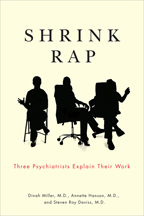
Jamie Justice, NAMI-Utah Director; Jackie Rendo, activist; Pete; Francisca Blanc, NAMI Development Director; Zara Juillerat, past NAMI Utah President.
2-2-15 Members of the Utah House appropriations committee were studying their computer screens and not making eye contact with me until I mentioned that I had encountered three persons the day before outside the gates of the Mormon Temple grounds in Salt Lake City who were panhandling.
“Do you know how much NOT helping those three is costing you?” I asked during my hurried seven minutes of testimony.







